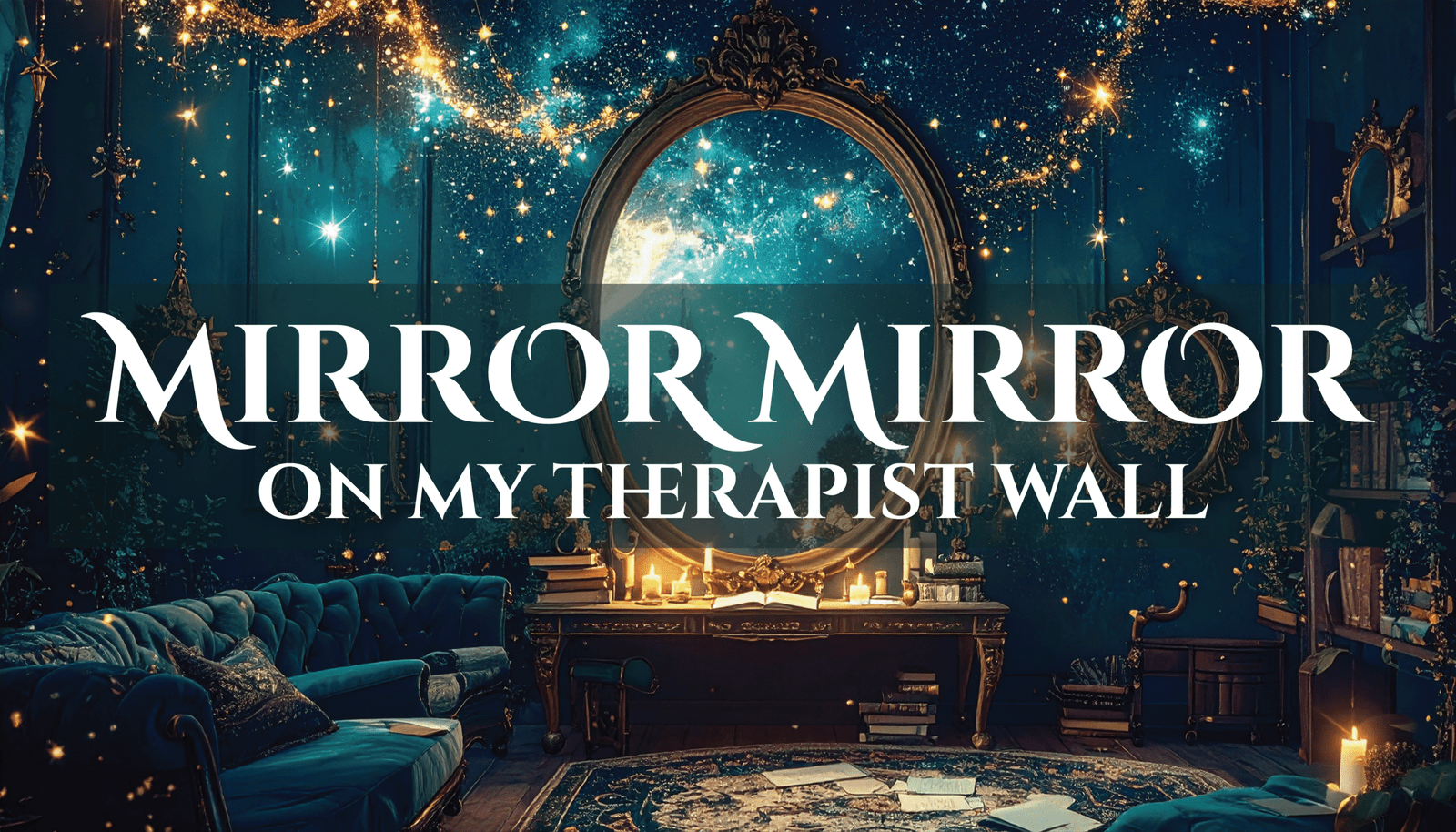
Mirror Mirror On My Therapist Wall: Abigail and Amelia
Share the Post: Mental Health Lessons from Abigail and Amelia: The Unsung Sisters of Self-Worth in The Aristocats When people

Ursula, the Sea Witch, and the Silencing of the Self: A Mental Health Deep Dive
You might know her as the villainous sea witch from The Little Mermaid—all tentacles, lipstick, and sass. But what if I told you that Ursula is more than just a misunderstood villain? What if she’s actually a powerful metaphor for silenced voices, unmet needs, and the consequences of shrinking yourself for love and approval?
In this blog, we’re going under the surface—literally and emotionally—to explore the mental health themes that make Ursula one of Disney’s most complex, relatable characters. Spoiler: she’s the real queen of shadow work.
Let’s start with the obvious: Ursula takes Ariel’s voice. Not her fin, not her magic—her voice.
In Jungian psychology, the voice is often a symbol of authenticity, self-expression, and agency. Taking away someone’s voice is symbolic of silencing their truth, their needs, and their boundaries.
And what does Ariel trade her voice for? Approval. Belonging. Love.
Sound familiar?
Many of us, especially women and queer folks, learn to silence ourselves in order to be liked, safe, or accepted. We:
Shrink our opinions to avoid conflict
Mask our emotions to be “easy to be around”
Abandon our needs to keep relationships intact
Ursula doesn’t just silence Ariel. She reflects the internalized belief that self-expression is dangerous—and that our value comes from being palatable, not powerful.
Here’s what no one talks about: Ursula used to live in the palace.
That’s right. In early drafts of the story (and hinted at in the musical), Ursula wasn’t always a sea witch—she was exiled. She once had power, position, and prestige… until she didn’t.
Her villainy isn’t random. It’s revenge for being discarded. Her character arc mirrors the psychological experience of being cast out for being too much—too loud, too bold, too ambitious.
Ursula is the embodiment of the exiled feminine—the powerful, assertive energy that society tries to suppress.
She’s not evil. She’s hurt. She’s done being silenced. And she’s taking up space.
Let’s break down what Ursula represents psychologically:
Ursula Trait | Mental Health Symbolism |
Takes Ariel’s voice | Silencing the authentic self to gain acceptance |
Lives in exile | Shame, rejection, and internalized unworthiness |
Uses manipulation | Trauma response: controlling others to prevent further abandonment |
Bold, theatrical, dramatic | Reclaiming space after a history of being silenced |
Shape-shifting into Vanessa | The false self we create to be “desirable” or “digestible” |
She’s basically your Inner Critic and your Inner Rebel rolled into one: bitter because she was hurt, powerful because she survived, manipulative because she’s terrified of being rejected again.
Silencing Yourself Doesn’t Create Real Connection
Ariel literally gives up her voice for a chance at love—and ends up unable to communicate, advocate, or consent. This is a metaphor for how we lose ourselves trying to win others over.
Unprocessed Pain Becomes Projection
Ursula turns her pain outward. She punishes others for what she lost. That’s what trauma can do—it distorts our empathy, our trust, our perception of others’ intentions.
Taking Up Space Isn’t a Sin
Ursula is BIG. Loud. Confident. She knows what she wants and isn’t afraid to claim it. For many of us, especially those taught to be small, that’s radical.
Repression Fuels the Shadow
Jung taught that whatever we repress becomes part of our shadow. Ursula is the shadow—part of ourselves we’re told is too dangerous, too loud, too demanding. But healing happens when we integrate that part—not exile it.
Whether you resonate with Ariel’s tendency to trade herself away, or Ursula’s rage at being overlooked and outcast, the message is clear:
You are allowed to be big. To be bold. To be heard.
Mental health isn’t about quieting your truth—it’s about finding it again after a lifetime of being told to hush.
So the next time someone tells you you’re too much, channel your inner Ursula, toss your head back, and say:
“Life’s full of tough choices, innit?”
Make the one that honors you.
Ready to reclaim your voice, your space, and your truth? Whether you’re healing from silence or ready to embrace your shadow, therapy can help you turn your wounds into wisdom. Let’s find your voice together.

Share the Post: Mental Health Lessons from Abigail and Amelia: The Unsung Sisters of Self-Worth in The Aristocats When people

Share the Post: Captain Hook: The Mental Health Icon We Never Expected Let’s be honest: Captain Hook has always been